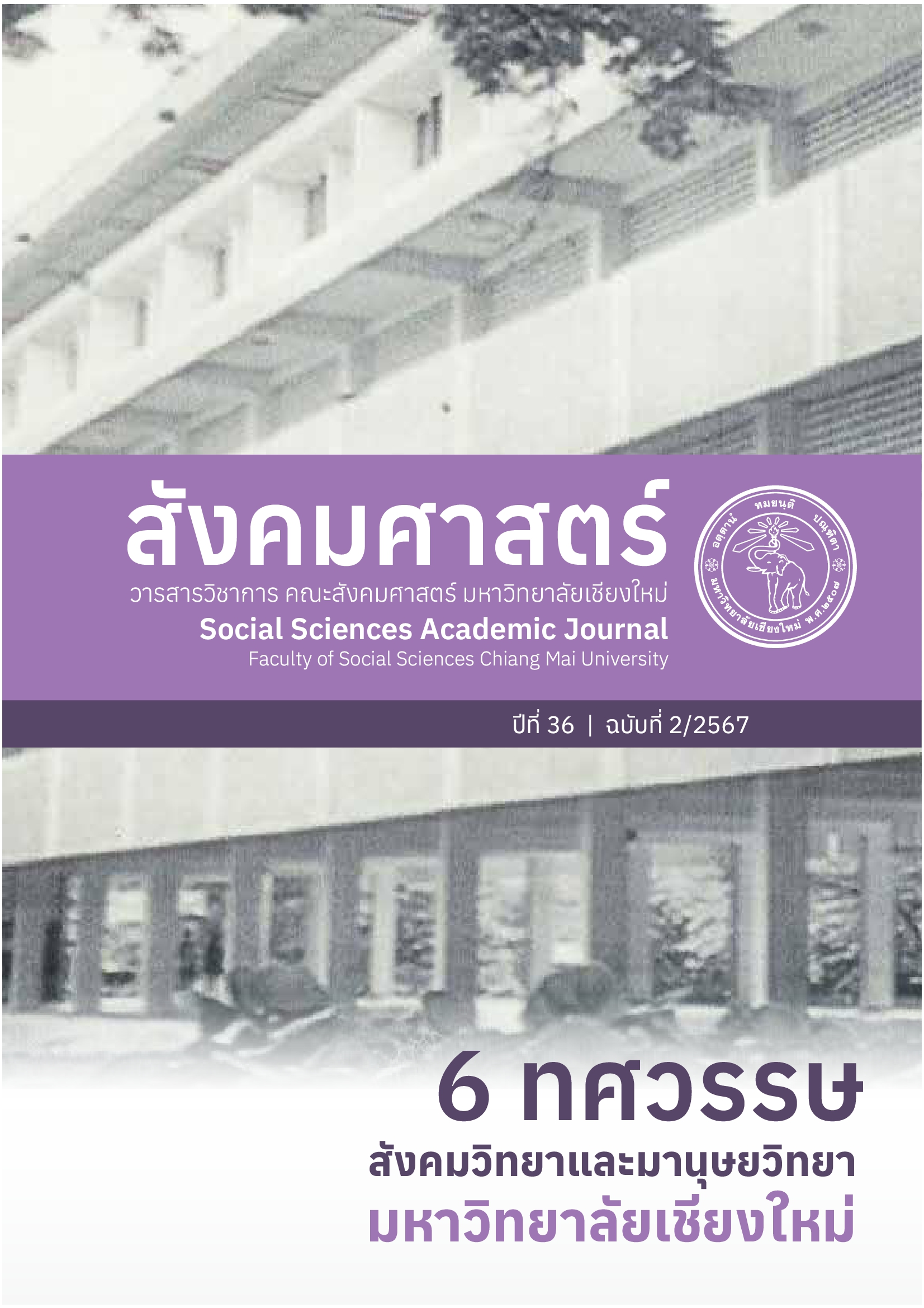The Capitalist System of Religious Cult: Case Study of Chakkapat House of Worship
Main Article Content
Abstract
This article needs to explain that religious cults in the capitalist system in Thai society exist under the mental and emotional relationship of the cult leader and his group of disciples. The rituals that took place at the Chakkapat house of worship created by Achan A Chakkapat, a businessman who changed his status to being the leader of the religious cults to consecrate sacred objects are studied. I argue that explaining capitalism in relation to religious beliefs cannot be based on straightforward theories of economics and consumer behavior, but rather on the emotional relationships humans have with each other. Conceptual framework suggested by Frances Morphy and Howard Morphy's (2017) “relative autonomy” and “intersubjectivity” are used to explain and reveal the interactions between ritual leaders and disciples. These two parts are strung together to create reverence, devotion and faith expressed in rituals and worship of sacred objects that bring good fortune. This is considered an important mechanism that allows capitalism of religious cults and ritual ceremonies to expand in Thai society.
Article Details

This work is licensed under a Creative Commons Attribution-NonCommercial-NoDerivatives 4.0 International License.
All written articles published on Journal of Social Sciences is its author’s opinion which is not belonged to Faculty of Social Sciences, Chiang Mai University or is not in a responsibility of the journal’s editorial committee’s members.


